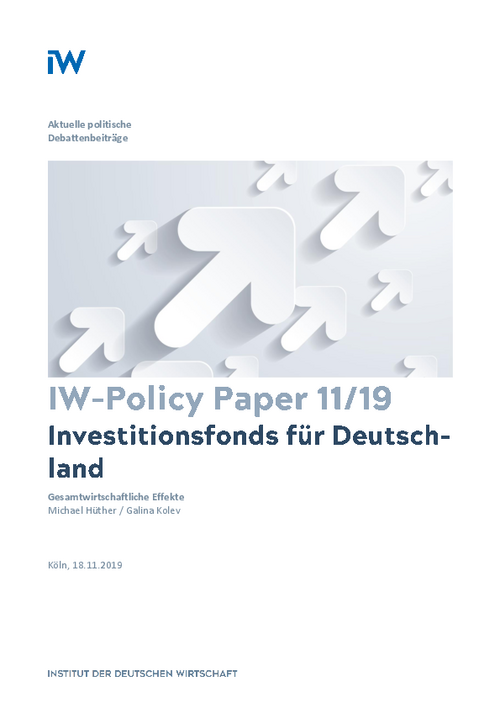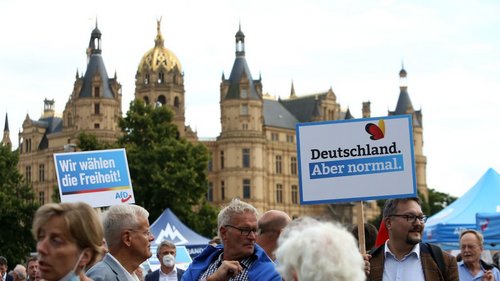Germany is in need of investment. This applies to both private and public investment, since it serves as intermediate input for entrepreneurial activity and efficient coordination of microeconomic transactions.

Investment Fund for Germany
IW-Policy Paper

Germany is in need of investment. This applies to both private and public investment, since it serves as intermediate input for entrepreneurial activity and efficient coordination of microeconomic transactions.
For some time now, the state of public capital stock in Germany has been discussed. It turns out that, especially in the area of municipalities and under the pressure of structural budgetary problems since the turn of the millennium, the capital stock has lost substance. The degree of modernisation of the general government capital stock has been declining for quite some time. This consideration does not take into account the investment needs arising from new infrastructures (such as fast Internet and 5G) and intensified political challenges (Climate Package 2019). With regard to the need to catch up as well as with regard to new tasks, it is relatively easy to obtain substantial sums of investment that the state has to deal with. With cautious assumptions one arrives at a volume of 450 billion euros, which can be lifted in the coming decade. In addition to the question of legal and technical implementation, this also leads to the question of the macroeconomic effects.
In order to estimate the macroeconomic effects of an investment fund for Germany amounting to 450 billion euros over the next ten years, simulations were carried out with the World Economic Model by Oxford Economics. The results show that government investment is likely to bring significant economic momentum, which is on the order of 1 per cent of the real gross domestic product and also stimulates private investment activity in Germany. In the medium to long term, an increase in aggregate potential output of about 1.4 per cent compared to the base forecast of Oxford Economics is to be expected. The impact on public finances is limited: increase in government debt induced by the Investment Fund is 5.1 per cent after ten years and the Maastricht deficit is below 1 per cent for the entire period.

Michael Hüther / Galina Kolev: Investitionsfonds für Deutschland
IW-Policy Paper

More on the topic

Tailoring the Truth: evidence on parliamentarians’ responsiveness and misinformation toleration from a field experiment
The rise of populist radical right parties (PRRPs) is largely seen to have been triggered by a dealignment between voters and political elites and to have triggered an increasing supply of misinformation.
IW
Works Council Elections 2022: Results of the IW Works Council Election Survey
Works councils receive strong backing from the workforces they represent. Nevertheless, the drop in turnout reported in the IW Works Council Election Survey 2022 suggests that this support is declining.
IW